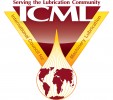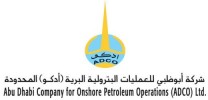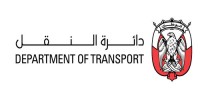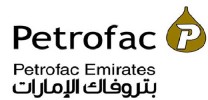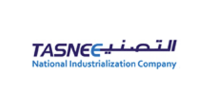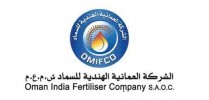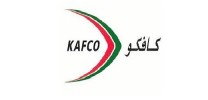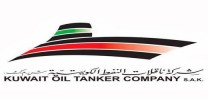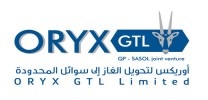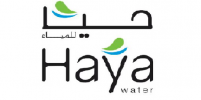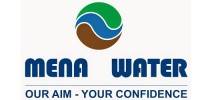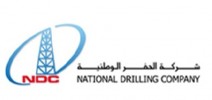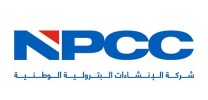
Project Cost Estimating Skills: Planning for Performance Excellence - II
Course Introduction:
The development of reliable cost estimates during the design and early conceptual stages of a proposed project are of critical importance.
The decision to proceed with a project is often based almost exclusively on early conceptual cost estimates, and these estimates provide the basis for the cash flow projections and forecasts used during the project feasibility study. Unreliable cost estimates can result in significant cost overruns later in the project life when it is too late to contain them.
In addition to the potential financial losses suffered by the organization, many such projects subsequently fail to deliver the required quality of outcomes intended for the project as a direct consequence of poor estimating. Budgeting inaccuracies inevitably result in lower quality workmanship and materials.
The estimating techniques and processes covered in this course will provide delegates with the necessary skills to forecast accurately the anticipated costs of projects with a focus on budget estimates, estimates for pre-construction services, estimating contractor and sub-contractor work, estimating general conditions, pricing self-performed work, estimating negotiated contracts, and performing lump sum and unit-price estimates.
This brand new day course will significantly enhance the skills and knowledge of delegates and improve their ability to perform estimates at both the conceptual and detailed levels, and to compare feasible alternatives quickly and efficiently
Course Objectives:
The Primary Objectives of the Seminar are to help Delegates to:
- Gain knowledge of techniques used in Project estimating, from the conceptual stage to the final detailed estimate
- Understand the different types of estimates used to accurately and progressively estimate project costs
- Understand the different types of contracts based on the distribution of risk between contracting parties
- Effectively apply incentive arrangements to get the best results from the contract
THE RESULTS
This intensive course will provide delegates with a proven set of critical skills and techniques to improve the accuracy and reliability of conceptual and detailed estimates used for project proposals and final estimates, and will enable delegates to:
- Integrate all relevant project elements into a cohesive and comprehensive cost estimate
- Prepare budget estimates that will enable the owner organization to make informed decisions as to the feasibility of a potential project
- Compare the costs of alternative strategies or technical approaches to ensure the most economical project at the desired level of quality
- Structure the contract compensation arrangement to provide the highest level of incentives to complete the project on schedule and within the determined budget
- Keep accurate control of the progressive budgeting process based on the various stages of design
- Prepare accurate budget estimates through the programming phase, the schematic design phase, and finally the design development phase
- Understanding the most appropriate contracting structure to ensure the desired project results
- Apply proper risk analysis to effectively mitigate risks at minimal costs, and to determine appropriate contingencies for residual risks
- Obtain the skills required to prepare and manage the bidding process
- Prepare lump-sum, unit-price, cost plus, and time-and materials estimates and
Who Should Attend?
This course is designed for project cost estimators, project designers, project planners and schedulers, contracts professionals, project procurement and purchasing staff, and project control and business services professionals who have the responsibility for preparing cost estimates and project proposals in client and contracting companies.
Course Outline:
COST ESTIMATING BASICS
· Basic Project Management definitions
· Cost Selection Methods
· Typical project terminology & setting up for success
· Project cost management
· Cost estimation
· Cost Budgeting
· Cost Control
· Triple Constraints – Time, Cost, Scope
· Understanding project management inputs to cost estimation
· Resource and Cost Allocation • Workshop
DEVELOPING THE PROJECT BUDGET & COST CONTROL
· Project management inputs to cost budgeting
· Resource Requirements
· Direct & Indirect Project Costs
· PERT, Probability and Standard Deviation Formulae
· Calculating the Standard Deviation
· Earned Value Control Process
· Schedule Variances
· Earned Value Analysis
· Earned Value Reporting
· Project Variance Analysis and Quantification
· Schedule Performance Index (SPI)
· Cost Performance Index (CPI)
· Estimate At Completion (EAC)
· Estimate To Complete (ETC)
MANAGING COST RISK
· Risk Analysis & Management
· Risk Identification
· Qualitative Risk Analysis
· Quantitative Risk Analysis
· Risk & Probability Matrix
· Risk Response Strategy
· Contingency Reserve
· Watch List
· Acceptance Strategy
· The S-Curve for Risk & for Cost
· Workshop
CONTRACT TYPES & COMPENSATION ARRANGEMENTS
· Procurement Management
· Make or Buy Analysis
· Procurement documents
· Contract types
· Risk distribution in contracting
· Project risk profiles
· Contract types according to risk distribution
· Fixed Price Contracts
» Firm Fixed Price
» Fixed Price with Economic Adjustment
· Incentive Contracts
» Fixed Price Incentive
» Cost Plus Incentive
· Cost-Plus Contracts
» Cost Reimbursement
» Cost Plus Award Fee
» Cost Plus Fixed Fee
· Time-and-Materials
· Workshop
COST OF QUALITY
· Quality Planning & Assurance
· Quality Control
· Benchmarking
· Pareto Analysis
· Cause & Effect – Fishbone
· Control Chart
· Quality & Grade
· Workshop
Course Methodology:
A variety of methodologies will be used during the course that includes:
· (30%) Based on Case Studies
· (30%) Techniques
· (30%) Role Play
· (10%) Concepts
· Pre-test and Post-test
· Variety of Learning Methods
· Lectures
· Case Studies and Self Questionaires
· Group Work
· Discussion
· Presentation
Course Fees:
This rate includes participant’s manual, Hand-Outs, buffet lunch, coffee/tea on arrival, morning & afternoon of each day.
Course Timings:
Daily Course Timings:
08:00 - 08:20 Morning Coffee / Tea
08:20 - 10:00 First Session
10:00 - 10:20 Coffee / Tea / Snacks
10:20 - 12:20 Second Session
12:20 - 13:30 Lunch Break & Prayer Break
13:30 - 15:00 Last Session





.jpg)





